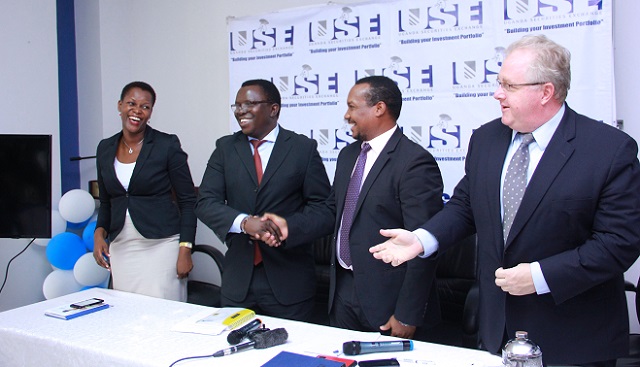
How it handles conflict of interest will enhance or sink corporate governance in capital markets
COMMENT | SILVER KAYONDO | A few weeks ago, the Uganda Stock Exchange (USE) confirmed it had received formal approval from the regulatory body, the Capital Markets Authority (CMA) to operate a demutualised stock exchange. This means that the ownership of the Exchange has been separated from the trading rights of its members, the stock brokers. The shareholding in the USE is held by significant market players such as UAP Old Mutual Financial Services Limited, Dyer & Blair Uganda Limited, African Alliance Uganda Limited, Baroda Capital Limited, Crested Capital Limited, and Equity Stock Brokers Uganda Limited.
With this move, the USE becomes a company limited by shares with a change in its corporate governance and managerial structure. This is in line with capital market developments in other African jurisdictions such as Kenya, Rwanda, Tanzania, Nigeria and South Africa. Internationally, there has been keen interest from exchanges to demutualise and either immediately, or a short time thereafter, seek a primary listing on the exchange.
The first stock exchange to demutualise was the Stockholm Stock Exchange in 1993. Thereafter, the trend to demutualise spread rapidly with exchanges in Canada (Toronto Stock Exchange), Europe (London Stock Exchange 2001), Asia (Hong Kong Stock Exchange), India and Africa, Johannesburg Stock Exchange (JSE) in 2005, Stock Exchange of Mauritius in 2000, and recently, the Dar es Salaam Stock Exchange, and Nairobi Stock Exchange demutualising.
Other stock exchanges such as the Rwanda Stock Exchange demutualised from the start as it was incorporated as a private company limited by shares. In South Africa’s case, with effect from 1 July 2005, the JSE new chapter as a public company after approval by the Financial Stability Board (FSB) saw membership of the exchange separated from ownership of the exchange.
As a result, any person is entitled to purchase and hold shares in the JSE and ownership of a JSE share is not a requirement for membership of the exchange. Uganda is in its initial stages of taking similar strides. To safeguard corporate governance requirements, the FSB made it a condition of the approval that the JSE must comply with the King Codes on Corporate Governance at all times.
In Uganda’s context, the process follows recent amendments to the regulatory legal framework introduced by the Capital Markets Authority (Amendment]) Act, 2016 and the Capital Markets Authority (Establishment of Stock Exchange) (Amendment) Regulations, 2016. The regulatory approval also paves way for the planned self-listing of the USE through an Initial Public Offer (IPO) that is hoped to happen in the next couple of years, according to the USE. In terms of shareholding, the trading participants (stock brokers) will be required to reduce their shareholding to no more than 40% within the next three years while no single member will be allowed to hold more than 10% of the issued shares at the exchange.
In terms of corporate governance and regulatory compliance, demutualisation processes undergo intense regulatory scrutiny and review, and thus lead to introduction of appropriate measures to align the incentives and address some unavoidable conflicts of interest related to self-listing and self-regulation. By going public, there is increased transparency, accountability and flexibility to expand to new markets. This in turn enhances market and product innovation, and access to more capital.
According to Abimbola Ogunbanjo, First Vice President of the Nigerian Stock Exchange in his speech at the 2017 edition of the Building African Financial Markets (BAFM) capacity building seminar held in Casablanca on May 18, demutualisation enables exchanges to easily restructure, merge and form alliances with other exchanges and capital market institutions to maximise economies of scale and scope, accessibility and market reach. In addition, demutualisation creates more agility and flexibility, thus enabling exchanges to respond more swiftly to increasing competition arising from the emergence of alternative trading systems and globalisation.
In terms of cross-border implications, the demutualisation of the USE is in line with the East African Securities Exchange Association (EASEA) and the African Securities Exchanges Association (ASEA) to set up harmonised and standardised avenues for capital markets infrastructure because Africa’s markets are becoming increasingly automated and interconnected.
Demutualisation alongside other interventions such as increasing and diversifying product offerings, capacity building of market intermediaries, continuous public education and awareness campaigns, and support for integrated market infrastructure systems such as trading platforms and depository interface are right steps in the right direction.
However, like any other developing exchanges, the demutualised USE will face some challenges and risks along its new journey. For instance, corporate governance deficiencies remain major challenges in the Ugandan market. Another concern is potential conflicts of interest that could be faced by the demutualised exchange, including risks to the maintenance of a proper balance between the exchange’s public interest obligations and its commercial interests, and the potential misuse of regulatory powers for commercial purposes.
Essentially, the major practical challenge in demutualised exchanges relates to the potential conflicts of interest faced by exchanges in regulating issuers. However, the safeguards such as enhanced conflict avoidance and disclosure requirements, and the mandatory adoption of the Code of Corporate Governance contained in the Companies Act, 2012 and the CMA Act and Regulations are important buffers against corporate abuse of the demutualization structure
****
Silver Kayondo is an Associate at Bowmans Uganda (A.F Mpanga Advocates) where he practices corporate and commercial law. He holds a Master of Laws (with distinction) from the University of Pretoria, South Africa.
Email: silver.kayondo@bowmanslaw.com Twitter: @SilverKayondo
 The Independent Uganda: You get the Truth we Pay the Price
The Independent Uganda: You get the Truth we Pay the Price


